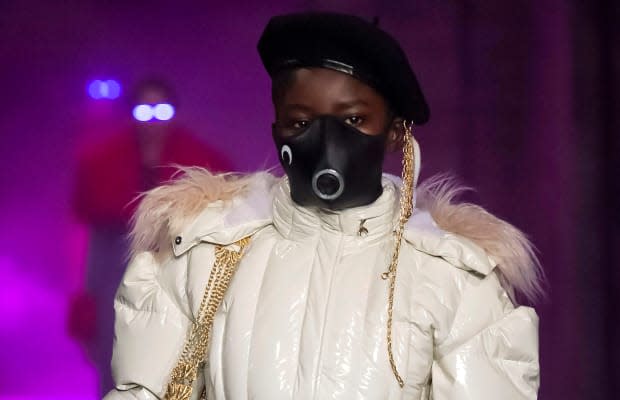Must Read: 'Anti-Viral-Leisure' Could Be a $20 Billion Opportunity, This Is Not the End of Fashion
Plus, Charlotte Tilbury sells majority stake to Puig.

These are the stories making headlines in fashion on Thursday.
'Anti-viral-leisure' could present a billion-dollar opportunity for a struggling fashion industry
Fashion businesses have taken significant financial hits due to the ongoing Covid-19 pandemic. As these companies look for ways to get through it, a new category is emerging: protective apparel and accessories — or anti-viral-leisure, as WWD has coined it. The NPD Group's Marshal Cohen told the publication: "Fashion is probably the most challenged of all industries right now, and it's going to be put to task to create innovation to drive any kind of activity and growth. Innovation will come by catering to how we live in this new anti-viral society….So you are going to see the birth of all these other categories and industries — what's an acceptable face shield to wear that doesn't make you look like a welder, workout apparel and socks that will manage germs…gloves that will breathe yet repel. And wait until we get to winter — cowl-necks may come back." {WWD}
This is not the end of fashion
In a time of pandemic, of protest, of unrest, some have wondered how we might dress after this. Will we wear anything other than sweatpants? Will people want to spend money on expensive designer pieces? Will sustainability be a bigger consideration than ever before? There might be a lot of uncertainty in the air, but Vanessa Friedman believes this is not the end of dressing up. "We will get dressed again," she writes in the New York Times. "Dressed not for the anonymity of the hospital or the essential work force, the heat and heartbreak of the protest, the anomie of the supermarket or the park, but for the next stage catharsis. Capital D Dressed. It is both history and human nature." {The New York Times}
Charlotte Tilbury sells majority stake to Puig
Business of Fashion reports that on Thursday, Puig — parent company to Carolina Herrera, Dries van Noten, Nina Ricci and more — announced it would acquire a majority stake in Charlotte Tilbury, with the brand's founder expected to stay on as chairman, president and chief creative officer. {Business of Fashion}
Post-pandemic, the fashion industry will rely on freelancers more than ever
Fashion operations may be starting to open up across the globe, but when it comes to who's going to be doing the work — whether it's creating the campaigns or actually making the collections — Business of Fashion predicts it'll fall on contractors as opposed to full-time salaried employees, more than ever before. And that could have some big implications on the industry. Massimilano Di Battista at Management Artist said: "Companies will have to be very agile when allocating their resources. It's going to take setting up a system that allows for flexibility, meaning [less] full-time employees and a larger number of freelance collaborators." {Business of Fashion}
Uoma Beauty founder launches #PullUpOrShutUp campaign
Sharon Chuter of Uoma Beauty is bringing attention to the lack of diversity in corporate America with the Pull Up for Change #PullUpOrShutUp campaign. It asks companies that have expressed public support for the Black Lives Matter movement to release information about how many Black people they have on staff and in leadership positions, and asks shoppers to not spend money with these companies for a 72-hour period, starting on June 3. "This is an exercise telling companies, 'This is an opportunity for you to do the right thing,'" Chuter said. "History will judge where you stood, regardless of your race. It is all our problem. It is up to each and every one of us to determine how history's gonna see us." {WWD}
Want more Fashionista? Sign up for our daily newsletter and get us directly in your inbox.